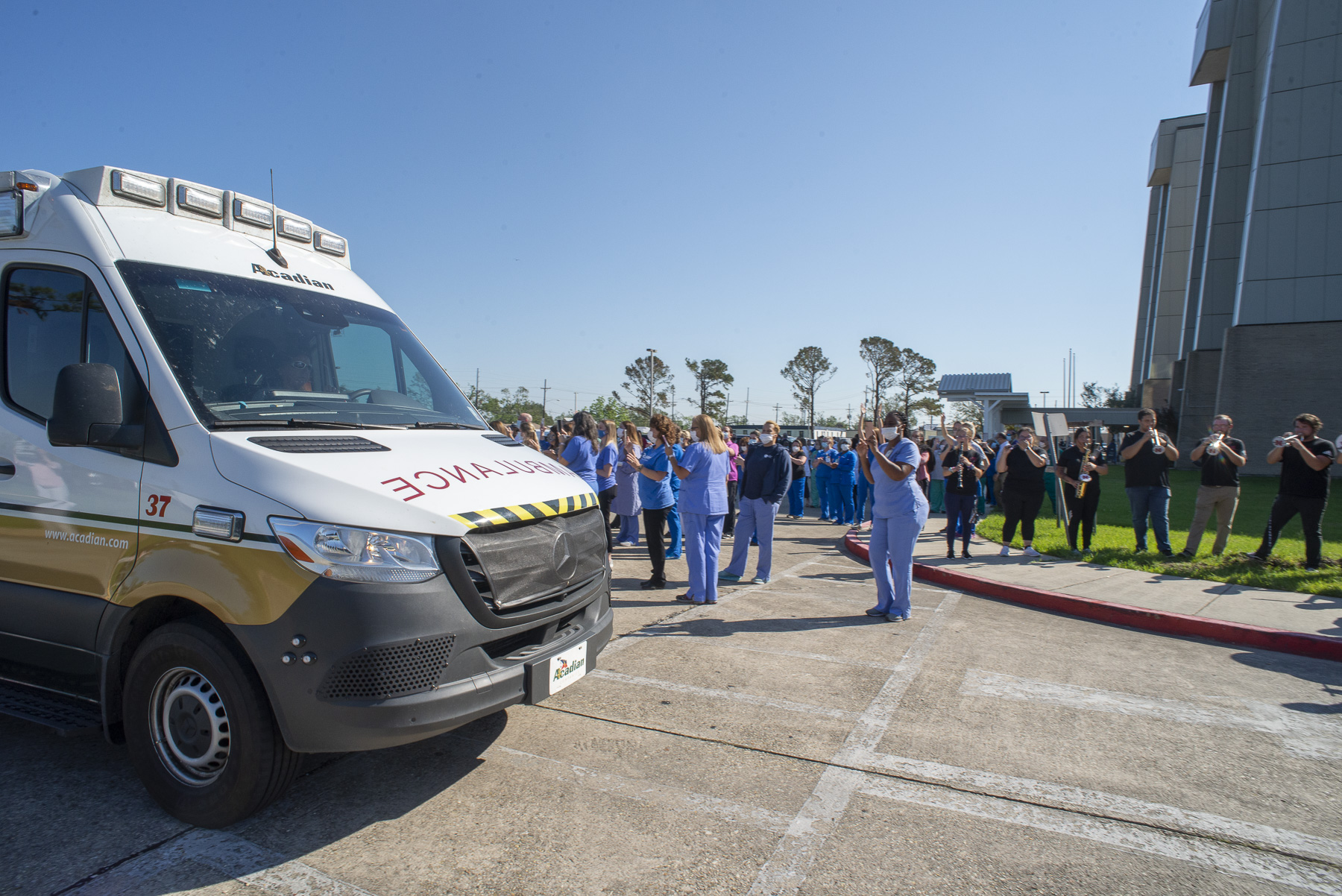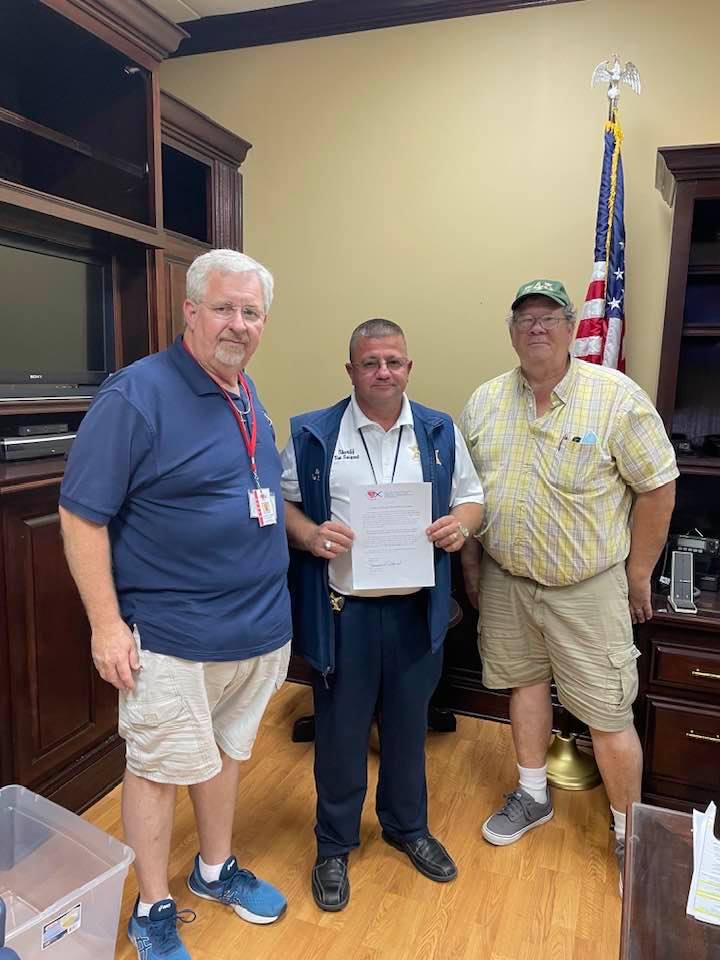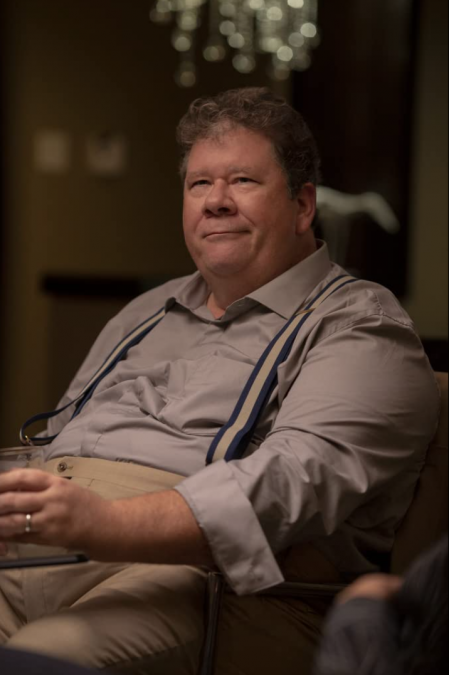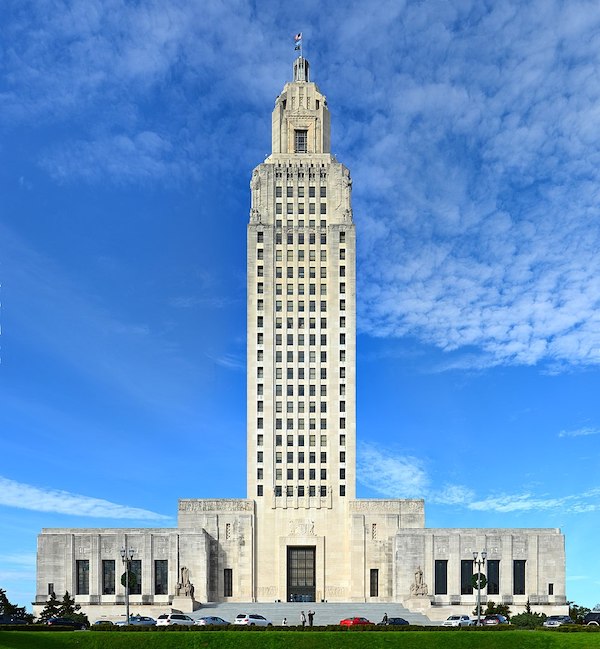
Leonard J. Chabert Medical Center Resumes Inpatient Services, Honors Team Following Hurricane Ida
October 8, 2021
FEMA Releases Revised Preliminary Flood Maps for Terrebonne Parish
October 8, 2021Many know John “Spud” McConnell as an actor, director, writer and can recognize his voice from the WWL talk show “The Spud Show.” Houma now knows him as the Community Relations (or in his words, the “Schmoozer”) at Terrebonne Churches United Food Bank. He visited TCU post-Ida to deliver generators when a long-time friend, TCU Executive Director Lawrence Dehart, approached him about the opportunity to be able to tell the story of the work they do to reach out to the community to gain more awareness, resources, and volunteerism.

From left to right: TCU Executive Director Lawrence, Terrebonne Parish Sheriff Tim Soignet, and “Spud” McConnel.
Dehart said they have been needing help from surrounding areas and “Spud” will help gather resources outside of the Houma area to lend a helping hand. “I went to someone that has a passion and can convey that,” he said,” and who was a great storyteller.”
McConnell has quite a track record when it comes to his career, a Google search will prove that. Although he is successful, the TCU employee has had some rough times. He was still hosting his talkshow when Hurricane Katrina made history in Louisiana. “For Katrina,” he said” I was still on WWL, so I was talking to people in and out of the storm. I would be on the phone with people after the levees broke…and you knew they were going to be dead in ten minutes. They were going to drown.” It was experiences like this, that almost led to him not taking the job in Houma because he knew what disasters bring.
McConnell recalled after the storm when he still couldn’t go check on his home. At the time, he was shooting a movie in St. Francisville, so he had a hotel where his family also were staying. He was commuting to Baton Rouge early in the mornings because that’s where they were temporarily broadcasting. He finally called the Jefferson Parish President and said he needed to get into his home. It was agreed upon and he was told to meet deputies. Two deputies were waiting for him with a boat when he arrived. They took off towards his home and he said he was too stunned to take pictures. The water was still 5-7 feet deep. When they got to his home, he had to reach under the water to unlatch his gate. They drove up to the house and he said the water was still deep inside of his home. He had wood covering the top-half of his front door, he was going to remove it, but the deputy advised to keep it on because it could discourage looters once the water resides.
They were able to get inside the house and he said everything was ruined, the house a complete mess. He was looking for a few items his wife wanted to save, but the deputies said he only had 40 minutes. They told him they were pulled off of cadaver duty so they could bring him to check on his home. “Their job was to pick up bodies that were floating in the floodwaters…” he recalled. They also just bought a home in Mississippi. They didn’t pay their first mortgage payment when Katrina surges wiped out the house.
He also recalled an interview from BBC that they wanted to do ten or so years after Katrina. They played a recording from a call from the show that was from during the storm who turned out to be Big Freedia. He said, “They started asking if I remembered all of that, and I said yea I remember it, but I don’t want to remember it.” He said he and Dehart were traveling when Dehart said “I don’t want to relive all of this, I need to learn the lessons from it, but the rest of it I want to forget.” McConnell said he feels the same way because he doesn’t want to be woken up at 1:30 in the morning reliving those memories.
This led to a conversation about what first responders endure during natural disasters. Dehart described the horror of being asked to go search for people after a storm, “being asked to go to the lower parishes, and go house to house, and you’re one of those people putting the X’s. You’re having to go into these houses to look for bodies, and you how you can tell? The smell,” he said while tearing up. McConnell agreed. Dehart said the problem was that they would have entire brick homes with slabs that didn’t match the address on the slip of paper. The house turned out to belong to an address three miles up the road. “The whole structure gets pushed…and you still have to go in there,” he said.
Dehart asked, “if you have family missing, wouldn’t you want to know? Somebody has to do it. Are you ever going to have that peace if you don’t find out? I would want that peace.”
“That’s why we just feed people now. It’s much nicer, “McConnell said.







